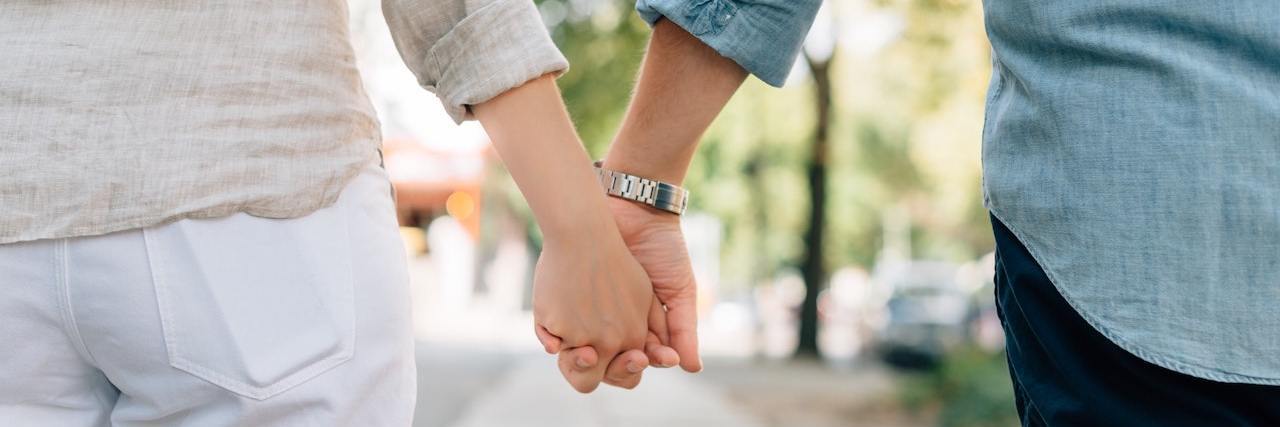If you have a trauma history, dating can be complicated. It can be more difficult to build trust with a new person in your life and it can take time to feel comfortable in your own skin around them. A number of factors can cause dating to be complex if you have post-traumatic stress disorder (PTSD) due to trauma. In my case, my PTSD stems from childhood trauma that included all forms of abuse. I need space and time to adjust to the presence of someone new in my life. I also can have moments where my reactions to triggers are more intense, especially in the beginning of getting to know someone. I find it most difficult to navigate triggers while in the moment, on a date. In those moments, I have to ground myself in a space that normally wouldn’t be my safe space. It can all be overwhelming, not to mention intimidating.
For example, recently while out on a date with a nice person, I found myself feeling as if my PTSD was experiencing a sudden flare of symptoms. A movie theater can sometimes be an environment that can lead to potentially triggering stimuli for me. Because I also have chronic illnesses and am sensitive to things such as light, sounds and sudden movements, my body can feel pain without much conjuring and migraines may be triggered with a single flash of a light. Beyond my physical symptoms, my PTSD can come to the forefront and often more easily.
Back in that theater, my date had no idea that while we were sitting, watching a movie that I was suddenly startled by his sudden move in the seat next to me. Or that when he stretched to put his arm around me, my PTSD decided to show up. We had done this before, but suddenly I was triggered and well aware where his hands were at all times. I wanted to sink into my body and get away even though moments ago I had wondered and wanted to cuddle while we enjoyed the movie. Then, the movie we were watching had references and scenes about childhood sexual abuse. I sat there and worked through my triggers, grounding myself and understanding that I have trauma from my own childhood sexual abuse and my date doesn’t know this fact. In that moment, I could envision myself bailing on my date and running to the bathroom to hide. Instead, I was able to work through that difficult moment and came back to the present. I even went on to rest my head on my date’s shoulder and hold their hand as we enjoyed the movie together.
The end result though was that, although I was able to enjoy myself and relax in that moment, I was so physically weak after that PTSD attack, an attack my date didn’t even realize I was battling, that I needed to rest. It kicked in my fibromyalgia symptoms and my body had to relax the tension in my muscles. Through physical therapy and cognitive behavioral therapy, I’ve learned tools to help me through these kinds of moments, but it’s difficult, nonetheless.
What I know is that trust takes time. And because I have experienced abuse by trusted people in my life, I struggle to connect even with trustworthy people. Dating is supposed to be fun, relaxing and free of pressure. You’re supposed to enjoy yourself. With a diagnosis of post-traumatic stress disorder, you may have to ground yourself at times to truly find the enjoyment. But it’s worth it. It’s a part of thriving after abuse.
Because abuse also stole our power during the trauma, remembering you have control of what you want or do not want where your body is concerned is incredibly important to remember. I may have wanted my date’s arm around me minutes before, but it was completely in my rights to pull away and gain space. I was allowed to communicate that I was uncomfortable. Being respected by what we do or do not want is how consent is practiced in return. Just because we’ve experienced trauma, just because we’ve had our power stolen, doesn’t mean we can’t experience the enrichment in our lives of enjoyable things like going out on a date.
I know there will be more moments where I am triggered and go back into a trauma response. My brain has been wired to do this since childhood after all. Those pathways have been traveled far too often to just disappear. It takes work and therapy. It takes grounding myself and remembering I’m safe because I am my body’s protector, provider and best friend.
I do have the power. I do deserve living a life that includes me thriving after abuse. I am worthy of love and connection and experiencing beautiful moments with others. Even with the ups and downs, the sometimes unexpected roller-coaster that PTSD is, I am continuously living my best life.
Photo by Crew on Unsplash

